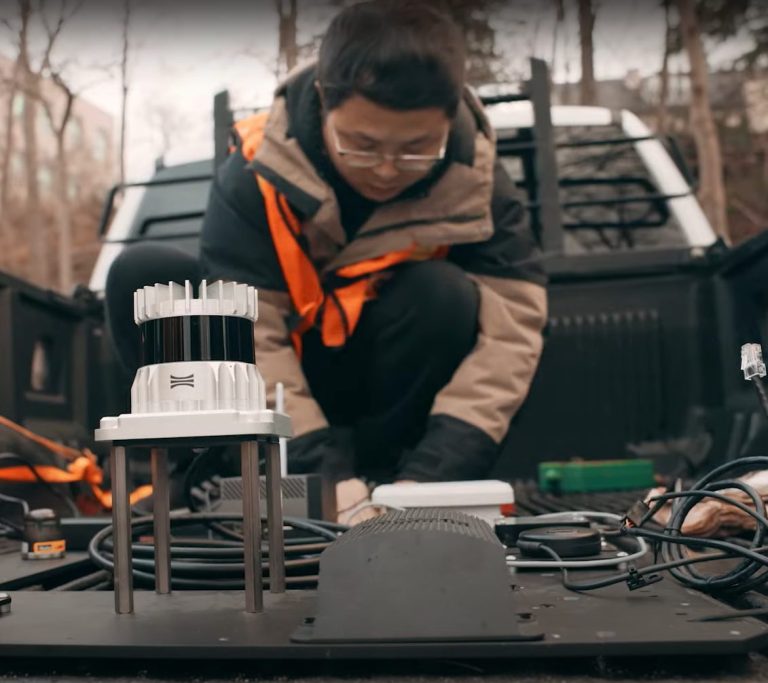
A new smart monitoring initiative from Western University’s Campus as a ‘Living Lab’ helps build smart cities using smart technology to maintain roads, bridges, and buildings more efficiently and effectively. The project aims to pilot and perfect new technologies, not only to maximize sustainability at Western University, but also to gather valuable information for staff in Facilities Management and other potential partners, like the City of London.
By transforming campus roads and buildings into a real-world testbed, the team is using an advanced urban scanning framework featuring lidar, cameras, and the Internet of Things sensors to collect real-time data on road conditions, air quality, and infrastructure health. These tools offer a low-cost, non-invasive alternative to traditional inspections, helping cities make more informed decisions around repairs, traffic flow, and environmental health – without disrupting daily operations. With expertise from engineering, cyber security, media studies, and information science, the project also tackles broader questions around data ethics and smart city design and gives local policy makers and city engineers access to actionable insights on infrastructure condition and environmental factors.
Backed by AI and sensor advances, this non-contact monitoring approach could enable municipalities across Ontario to inspect infrastructure more efficiently and cost-effectively, even under harsh weather conditions – supporting safer, smarter, and more resilient communities.
For more information, visit Western University.


